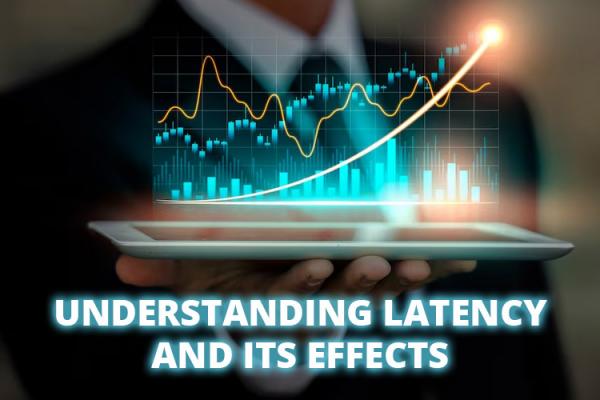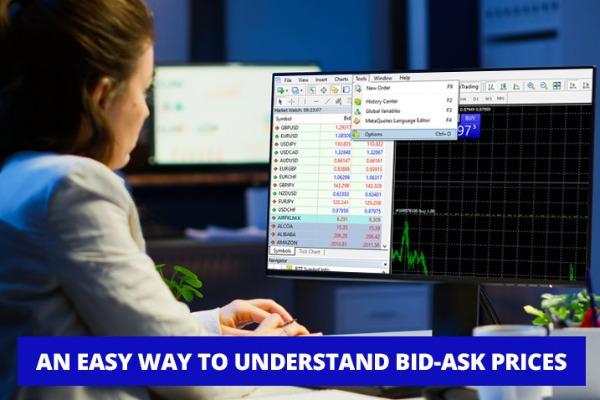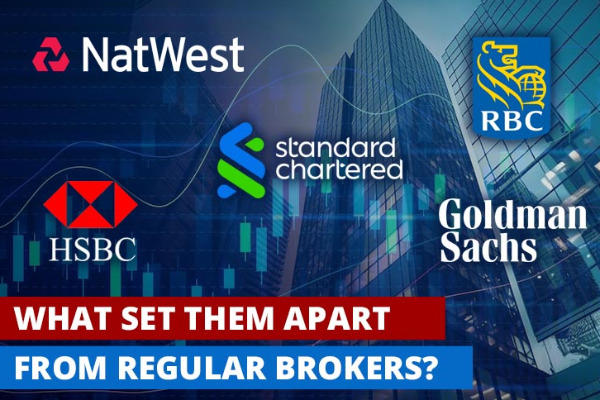Market makers and ECN are two types of brokers that every trader should know. Let's learn more about them and decide which one is the best.
These days, the only thing that separates us from the forex market is the internet. Thanks to recent technological developments, we can now easily access the market and even trade against giant financial institutions. Nevertheless, you still need a good broker to make money in the forex market. While there are tons of information that you can gather from the internet, many traders still get confused about which type of broker is suitable for them. In this guide, we'll talk about two of the most common forex broker types: market makers and ECN brokers.

Contents
How Market Makers Work
Market makers basically "make" their own market for traders on top of the real one, so all orders are executed on this market and rarely reach the real forex market. If you're trading with this type of broker, then you won't get direct access to the underlying liquidity that makes up the forex market because they use their own liquidity pool. This is why market makers are also commonly known as dealing desk brokers.
As market maker brokers make their own market, they must trade as counterparties to their customers. This means that they basically take the opposite side of your trade. Whenever you buy, they must sell and vice versa. To fill an order, the broker would have to find the opposite position from one of its other clients. If they can't find the matching order, the broker would either hold your order or trade against you. This is what usually sparks the conflict of interest between the broker and its clients.
Another distinctive characteristic of a market maker is the fact that they set both the bid and ask prices on their systems and they make money from the spread that is charged to their clients. Spread itself refers to the difference between the bid and the ask price of a transaction. This method is considered less risky for the broker because they could control the prices at which the orders are executed. Brokers typically keep the spread at a reasonable level due to the tight competition between them.
However, it's still worth mentioning that market makers may mark up the price quotes on their platform. Remember that market makers make money when the trader loses and lose money when the trader wins. In the worst case, some brokers could also manipulate the price and practice stop hunting, especially if the broker is unregulated. This is not to say that all market makers are unfair and biased, but it's a risk that every trader should acknowledge. So, as a trader, it's crucial to do your research properly and make sure that the broker is safe, reliable, and regulated.
See Also:
The Pros
- Market makers usually offer high leverage and user-friendly trading platforms.
- The trading platform could come with free software and news feeds.
- The price movements can be less volatile compared to the prices quoted on STP brokers.
The Cons
- There might be a conflict of interest between the broker and its clients because they must trade as counterparties to their customers.
- Many market makers ban scalping and have a tendency to set scalpers on manual execution so that they might not get the price they desire.
See Also:
How ECN Brokers Work
ECN (Electronic Communication Network) brokers are quite the opposite of market makers. Instead of making their own markets, ECN brokers let the traders' orders flow directly to liquidity providers with interbank market access. So, to execute an order, the broker would pick the best bid and ask prices from one of the liquidity providers. As a result, there's small to no chance for the broker to manipulate the price in any way. The system also allows them to provide better trading conditions and execute trades at better prices compared to market makers.
ECN brokers are also known as no-dealing desk brokers. This means that the orders are not executed through a dealing desk and the broker doesn't take the opposite side of their clients' trades. Instead, they simply act as the middleman that connects the customer with other investors through liquidity providers. True ECN brokers usually use the best technology trade servers like NY4 or LD5 data centers in New York and London, which are connected via fiber optics to their own ECN network and liquidity providers, allowing them to execute trades at lightning speed.
Moreover, most ECN brokers have access to a number of liquidity providers or the interbank market, each of which offers its own bid and ask prices. Therefore, the spreads in ECN brokers vary depending on the asset's trading activities and the time period. Sometimes, the broker may even offer zero spreads, usually in the more liquid currency pairs such as major pairs and currency crosses.
With that being said, ECN brokers don't make profits from spread but rather charge commission fees for each transaction. However, the amount is more likely to be cheaper and certainly more transparent than market makers. It is also worth noting that ECN brokers make money when investors have winning positions, so they're unlikely to trade against their clients.
The Pros
- Trades are more likely to be executed at better bid/ask prices because they are taken from several sources.
- Trade with low to zero spread at certain conditions.
- Higher transparency and less possibility of price manipulation.
- Fast trade execution.
The Cons
- Traders should pay a fixed commission fee for each transaction.
- The trading platforms tend to be less user-friendly.
- It can be hard to calculate the stop loss and breakeven points in pips in advance due to the variable spreads.
Final Thoughts
In a nutshell, market makers and ECN brokers operate in very different ways. While market makers create their own market and liquidity, ECN brokers only act as the middleman that connects their clients with the liquidity providers. At a glance, ECN brokers may sound better and safer because of their high transparency. However, we should note that market makers also have notable advantages such as high leverage and user-friendly platforms. Keep in mind that not all market makers are bad and manipulative.
At the end of the day, the broker's type does not justify whether the broker is actually trusted or not. Both market makers and ECN brokers have their own unique pros and cons, so your choice should be based on your personal needs and preference. The most important thing is to always do your research beforehand. Make sure that the broker is regulated, reliable, and able to provide everything you need for trading.

 Dedicated FREE FOREX VPS
Dedicated FREE FOREX VPS Free FOREX Virtual Private Server
Free FOREX Virtual Private Server MT4 Demo Contest, Get $500
MT4 Demo Contest, Get $500 Sign Up for an Account, Claim 60% Deposit Bonus
Sign Up for an Account, Claim 60% Deposit Bonus Free MT4/MT5 VPS 2024
Free MT4/MT5 VPS 2024 Send E-mail and Get Free Merchandise
Send E-mail and Get Free Merchandise $1K Refer a Friend Bonus for Pepperstone Pro clients
$1K Refer a Friend Bonus for Pepperstone Pro clients Maximize Your Earnings with 100% Deposit bonus
Maximize Your Earnings with 100% Deposit bonus Trade to Win, $5,000 Monthly Demo Contest
Trade to Win, $5,000 Monthly Demo Contest Claim 30% + 15% Deposit Bonus from LiteFinance
Claim 30% + 15% Deposit Bonus from LiteFinance











